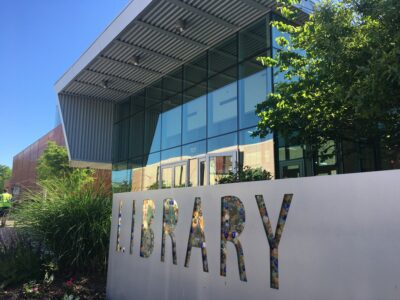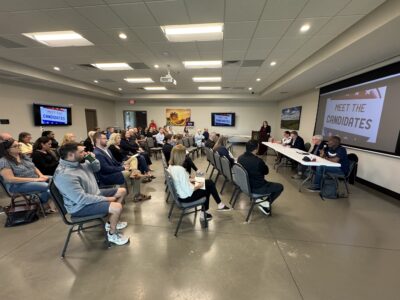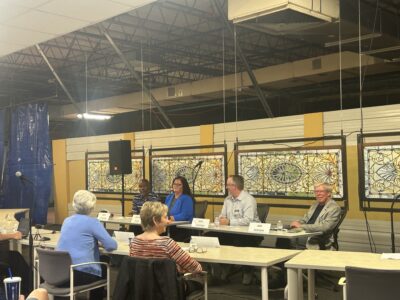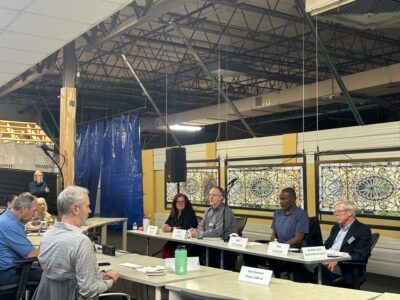2025 Lawrence City Commission primary voter guide: Get to know the candidates
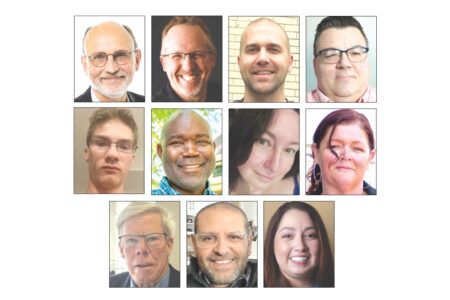
The Lawrence City Commission race is the only one in Lawrence that requires a primary election this year, but it includes a crowded field of candidates with varied backgrounds and priorities.
Two four-year terms on the commission are on the ballot this year. The Journal-World reached out to all 13 candidates in the City Commission race whose names were on the ballot ahead of the Aug. 5 primary election, which will trim the field to just four candidates for the Nov. 4 general election.
Advance voting has already begun in Lawrence. Voters may vote in person at the county election office at 711 W. 23rd St., which is open for advance voting from 8 a.m. to 5 p.m. on weekdays through Friday, Aug. 1. It will also be open for advance voting on Saturday, Aug. 2, from 9 a.m. to 1 p.m., and on Monday, Aug. 4, from 8 a.m. to noon. On Election Day — Tuesday, Aug. 5 — polling places will be open from 7 a.m. to 7 p.m. More information about polling locations, dates and times is available on the Douglas County elections website, dgcoks.gov/county-clerk/voting-and-elections.
If you’re voting by mail, the last day to apply for a mail ballot is Tuesday, July 29. All mail ballots must be postmarked by Tuesday, Aug. 5, and received by Friday, Aug. 8.
The Journal-World asked candidates for their stances on a variety of issues, including cost of living, the University of Kansas’s Gateway project and their long-term goals. Twelve of the 13 candidates responded; the remaining candidate, Ruby Mae Johnson, did not respond to the Journal-World’s inquiry.
See the candidates’ responses below. Plus, for more information, check out our article where we asked each candidate to get a little more philosophical with us by describing what good government means to them. You can find that article here.
Paul Buskirk
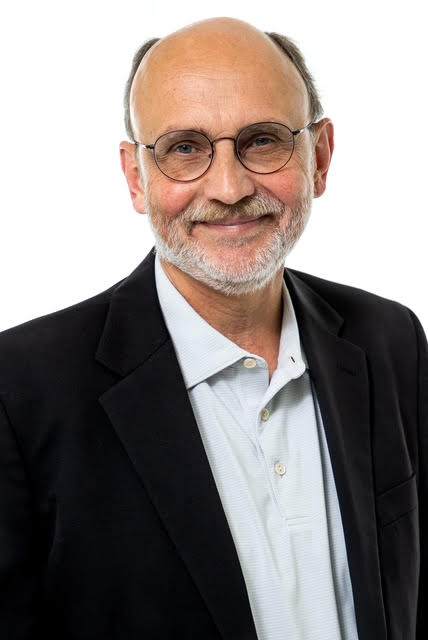
photo by: Contributed
Paul Buskirk
Buskirk, who recently retired after 38 years working as an educator with the KU athletics department, is no stranger to running for public office. He previously sought the Democratic nomination for U.S. Senate in 2022, and he ran against Tracey Mann in the 2024 U.S. House race for Kansas’ 1st District.
Now seeking a spot on the Lawrence City Commission, Buskirk said Lawrence “must keep the tax rates steady.” In order to do that, Buskirk said the city needs to place a greater emphasis on attracting industry and growing its tax base. He also thinks the city should expedite its building permit process, and he said other communities have processes that are “far more attractive to developers” than Lawrence’s. Making those changes “leads to greater inventory” of housing and can reduce prices, Buskirk said.
Buskirk said the Gateway project “seems to offer growth opportunities,” but he also thinks that some of the details of the plan have been presented in “broad strokes.” He said he hoped the City Commission had asked the right questions about the exact details, and that the city must “make a good business decision.”
One thing Buskirk said he would do as a commissioner is be “proactively engaged” in the budget process, rather than awaiting the suggestions of city staff. Buskirk said he would meet with leadership and individual groups that receive city funding to learn about the inner workings of each unit. He also said he would host regular town halls “to listen to our residents” and find out their priorities for the community.
A long-term goal for Buskirk if he were commissioner would be making sure that local government entities are not “operating in silos.” He said he would work to foster communication and build relationships between city leaders and staff and other local government entities, like the school board and the Douglas County Commission, because “they all serve the same community.”
Mike Courtney

photo by: Contributed
Mike Courtney
Courtney has been in the tech industry for 25 years and currently works as an AI engineer for Cisco Systems. He has worked at firms like Nvidia, Dell and IBM and also created startups in Silicon Valley.
Courtney, who has a master’s degree from KU and multiple bachelor’s degrees from Fitchburg State University in Massachusetts, said his previous experience working in the Washington, D.C., area brought him “years of state, local and federal experience” as well.
One issue Courtney has wanted to focus on is changing the budgeting strategies of the city, shifting from “short-range budgeting strategies” that the city currently uses to “longer-term budgeting strategies.” Making that switch and spreading out capital investment could “help drive down costs” like property taxes and utility rates for residents. Some specifics to this plan would be splitting road and infrastructure elements in the city’s five-year Capital Improvement Plan into a 10-year plan and defraying costs of the new Municipal Services and Operations department campus by selling the sites the department previously used once the resources consolidate at the new site.
Another idea that Courtney wants to implement to improve availability and affordability of single-family homes is to allow the use of “modular, off-site homes.” According to Courtney, these homes could reduce the cost of construction by 30% to 40% compared to constructing a home on-site, and he wants to include those modular homes as an option in the city’s Land Development Code.
Courtney also said he wants to hire a new director of economic development for the city that can help bring Kansas City companies to Lawrence, and he wants the city and KU to work to expand Innovation Park to bring in “marquee names from the Kansas City region.” Those moves, he believes, can provide new career opportunities for residents and help students at KU and Lawrence high schools find internships.
Mike Harreld
Harreld worked for about 10 years in “the caring industry.” He said his last position was as a supportive housing case manager at Bert Nash Community Mental Health Center, but that he was recently laid off.
Harreld said solving the city’s budget issues would be hard to fully answer without being in office, but he believes the city has spent money in ways that “maximize (the) cost while minimizing benefit.” An example, he said, was the city’s approach to the Homeless Solutions Division; he said he thought the cheapest option for addressing homelessness would be to “get them housed” instead of putting homeless residents up in a shelter.
In terms of making Lawrence more affordable, Harreld said the city should aim to increase its public housing stock, with a short-term goal of “cranking out units” for the most needy. Eventually, the city should aim to create mid-sized housing units that are optimized for space and cost-efficiency, include community garden spaces and have infrastructure built around public transit. He said the city should aim to publicly own 10% of its housing stock and give priority for that housing to people who live and work in Lawrence and make up the city’s “economic base.”
Harreld said he is not sure the Gateway Project is the “best investment on the part of the city.” He would prefer the city focus its resources on sectors that increase the quality of life and the earnings of workers instead of something that is “primarily to benefit people outside of our community.” He said he wants to find ways to strengthen workers’ rights in the city as well.
An additional goal for Harreld if he were a commissioner would be to find ways to “lock down the illegal activity of ICE (Immigration and Customs Enforcement)” before they came to Lawrence. With many ICE officers not identifying themselves during immigration raids across the country, Harreld said there should be “specific strategies and institutions in place” to handle these situations.
Eric Hyde
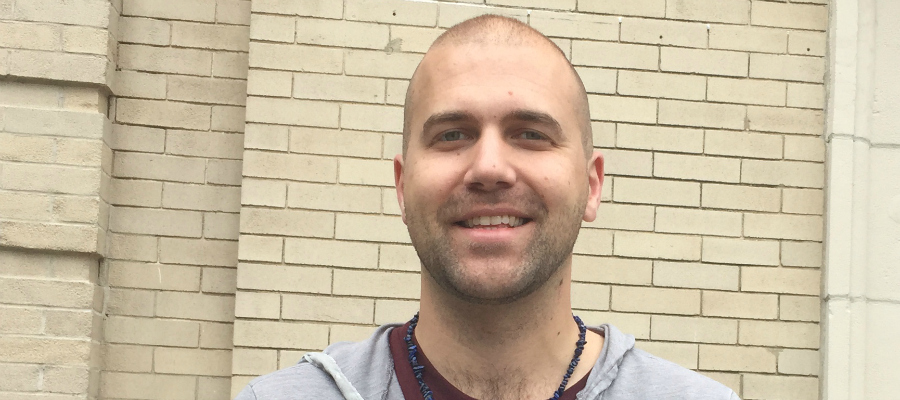
Hyde, a Lawrence High School alumnus who also attended KU, has worked a variety of jobs, including as a professional mover, a special education assistant, a filmmaker and a paramedic. He now cleans and paints houses with his wife.
When asked about the city’s budget shortfall, Hyde said, “There’s really nothing to worry about. It’ll get sorted out.”
When asked about how to make Lawrence more affordable and specific responses to its cost of living issues, Hyde said, “Give to the market what it wants, and to God what is His.”
When asked about KU’s Gateway project, Hyde related an anecdote about celebrating on the day he asked his wife to marry him, including running up the hill near the KU football stadium and walking around the Oread neighborhood, downtown Lawrence and the Watson library stacks. He said, “The motto of KU is I will now turn aside, and see this great sight, why the bush is not burnt. Moses said that. It’s from Exodus 3:3. That’s my view on the proposed Gateway project.”
When asked about his long-term goals on the commission, Hyde said his aim is “God.” He said that “taking care of the basics” is important not just in life in general, but in running the city. Hyde said that around town, he sees trees “that need a haircut,” litter that should be picked up and windows that need to be cleaned. He believes that the community has “just gotta take care of this place more.”
Steve Jacob

photo by: Contributed
Steve Jacob
Jacob worked for the Lawrence city government for 34 years after graduating from Lawrence High School. He is now retired, and he has run twice for a seat on another local governing body, the Douglas County Commission.
In response to the city budget shortfall, Jacob said “across the board cuts” need to happen and that future projects should be limited. He said “moving money around” will not fix the problems of higher property taxes.
Jacob thinks the Gateway project is a “great idea,” but he does not agree with providing any tax incentives to KU, saying that is “welfare to a billion dollar organization.” He would prefer that KU pay its “fair share.”
Among his long-term goals, Jacob said he wants to provide tax relief at the city level and to “continue to keep our sanctuary city status for our LGBTQ+ community at all cost.”
Alex Kerr

photo by: Contributed
Alex Kerr.
Kerr is a senior at Lawrence Free State High School planning to study music education in college. Outside of his school work, Kerr said he works as a freelance lighting designer with theater companies in Topeka as well as Lawrence Opera Theatre.
On the budget shortfall, Kerr said the city should prioritize essential public safety services like police, fire and EMS and critical infrastructure like roads and sidewalks.
Kerr said he does not believe KU should get any tax breaks from the City of Lawrence for the Gateway project. He said KU is a major institution with its own funding streams and that he believes city tax breaks should only go to projects that “directly address community needs” like housing affordability, transportation and equitable economic development, especially in light of the city’s budget shortfall.
One way the city can be made more affordable is by expanding affordable housing projects, Kerr said. He said he would support mixed-income and “missing-middle” housing developments. Those projects can create more options for people who “may be priced out of traditional housing markets.”
Kerr listed three long-term goals he would pursue if he were a commissioner: creating a sustainable and responsible budget, ending chronic homelessness in Lawrence and building a culture of civic engagement and accessibility. For ending chronic homelessness, Kerr said he would push for a “housing first” approach and work to develop more supportive housing and expand partnerships with community providers.
Kerr also said he wants to make it easier for everyone to participate in city government. Some steps he would take include creating community advisory boards and holding regular town halls in every district.
Bart Littlejohn

photo by: Contributed photo
Bart Littlejohn
Littlejohn, who was first elected to the City Commission in 2021 and served as the city’s mayor last year, is the only incumbent running this year. He first came to Lawrence to attend KU and ended up staying in the city permanently.
As the city goes through budget deliberations this month, Littlejohn said he was thankful for city staff for starting the budget process early due to the $6.5 million shortfall. Littlejohn said a few of the changes he was interested in seeing were incorporating more funding options for projects that would complete the Lawrence Loop and finding more options for funding public safety.
Littlejohn said one way to bring down costs of living in the city would be adding more commercial development into the property tax base, something he feels that the commission has made “considerable progress” toward during his term. Because commercial property taxes are assessed at a higher value than residential property taxes, adding more commercial development would alleviate the tax burden on residents.
Littlejohn said he would continue the city’s work on economic development if he won another term. He said he believes local businesses are the “heart of a town” and that the city should work on developing economic hubs in a variety of areas like North Lawrence, downtown and 23rd Street to enhance its “flexibility and resiliency.”
On the KU Gateway project, Littlejohn said he believes it can be a “game-changer” and a way to add to and diversify the city’s tax base. But he wants to ensure there are mechanisms for the surrounding neighborhoods to collaborate and make sure it is connected to downtown so it can benefit “both the City of Lawrence as well as (KU).”
Another priority for Littlejohn is ensuring that Lawrence is “building more housing stock of all types,” which he said is key to preventing a constricted housing market.
Amanda Nielsen

photo by: Contributed
Amanda Nielsen
Nielsen, who has a bachelor of arts from the University of the Pacific in California, currently works as an operator for Lawrence Transit and a dispatcher for the Olathe school district.
Nielsen said that to deal with some of the city’s budget issues, she would want the city to carefully evaluate its programs, prioritize essential areas and identify where cuts can be made without severely impacting public services. She thinks the city should also “scale down or reduce” some planned construction projects and look into contracts that it holds with private companies. If there are contracts that aren’t being fulfilled, she said they should be canceled and given to a different company that could provide services for cheaper.
Nielsen said transit-friendly neighborhoods are “inherently more affordable,” so that could be one area for improvement. She would also like to strengthen the Affordable Housing Trust Fund and find ways to grow the economy that also help the average worker. One way to do that, Nielsen said, could be creating tax incentives for companies that offer a living wage and/or a special tax on companies that don’t offer a living wage.
While she notes the importance of KU to Lawrence, Nielsen said she does not feel it is the city’s responsibility to assist with funding the Gateway project, believing it should be the responsibility of the university.
Longer-term goals for Nielsen if she were a commissioner include bringing more industry to Lawrence such as a solar farm and using solar power for all government buildings. Nielsen also said she wants to see ways to support locally grown neighborhood businesses.
Kristine Polian
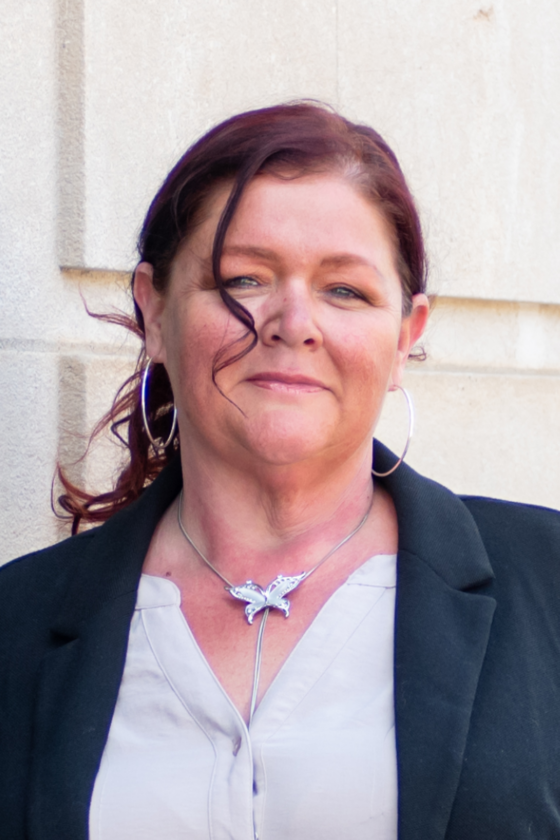
photo by: Contributed
Kristine Polian
Polian has earned bachelor’s degrees in business from KU and Friends University before working in finance and city management in cities across the country, including in Kansas, Texas and California, for over two decades. She previously was the chief financial officer for the Lawrence-Douglas County Housing Authority.
In terms of budgeting principles, Polian said the city must cover its core services — she listed streets, fire, police, water and sewer — before considering any other kinds of services or amenities. She also thinks the city should be “conservative in issuing debt” and look for more opportunities to make outside revenue, like the Lawrence Regional Airport.
Polian thinks that to make Lawrence more affordable, the city must increase its housing inventory and commercial tax base. One solution Polian suggests is creating more mixed-use developments that have both residential and commercial properties, which she sees as the most efficient solution. She also believes the city should establish criteria that would “require developers to include a higher percentage of affordable housing in their projects.”
Polian said she supports the Gateway project, saying it could be an “incredible addition” to the community and generate more revenue, but she thinks the city “must receive a clear benefit” that offsets the cost of any tax incentives it provides.
Polian said her first goal if elected would be to “establish trust between the community, the staff and the commission.” She said those relationships take time to build and must be “continually cultivated,” but that trust is essential in a thriving community. She also would work to make sure City Hall is a welcoming culture for businesses and developers, and she thinks her expertise in municipal finance would be a useful asset in educating people — including fellow commissioners — on fiscal solvency.
Bob Schumm
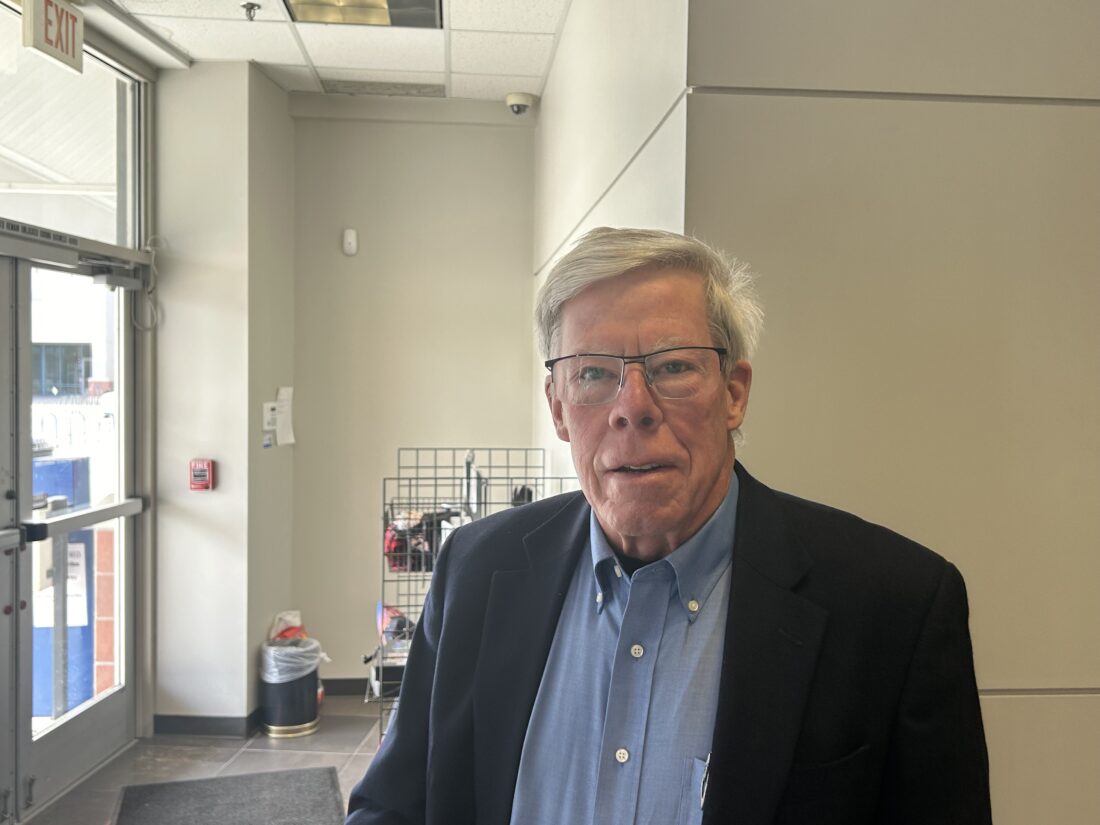
photo by: Bremen Keasey
Former City Commissioner Bob Schumm filed Wednesday to enter the race for Lawrence City Commission.
Schumm has been a familiar face at City Hall, as he has served multiple times on the City Commission before. He is a KU alumnus who was a commissioned officer in the United States Air Force and later owned and operated restaurants in Lawrence for 45 years.
Schumm feels the city’s budget shortfall happened because of heavy spending after the city received “loads of money” right after the onset of the COVID-19 pandemic. He said the city’s employee headcount increased by 150 in the past five years, and the city took on some “very large capital expenses projects.” All those factors, and the fact that the city didn’t meet expected sales tax projections, led to the budget issues, and Schumm said it has become “evident that we can’t afford all that we are doing.”
Schumm said one of his goals would be to make the city more financially sustainable. He said he would “slow down the amount of capital expense projects the city is authorizing each year” and work on growing the tax base to reduce the need to raise property taxes. Additionally, Schumm said “housing must be added” because having more homes built would make housing more affordable.
Schumm said he thinks the Gateway project is a “tremendous opportunity” for KU and the city. He said that most of the project is funded through STAR Bonds from the state, making it the “major contributor.” The project promises to bring more people to Lawrence through its conference center, and Schumm thinks bringing those visitors will be good for small business owners as they shop and dine out in Lawrence — something that increases sales tax collections as well.
Other priorities for Schumm include reducing the rate of homelessness in the city and completing the Lawrence Loop.
Peter Shenouda

photo by: Contributed
Peter Shenouda has filed for the Lawrence City Commission race.
Shenouda grew up in Egypt before eventually moving to Lawrence. He holds a bachelor’s degree in computer science and a master’s in business administration and works as a vendor manager for DirecTV.
In the face of the city’s budget challenges, Shenouda feels the city needs to have a more disciplined approach to spending, with projects only approved after considering what the return on investment would be and how it benefits the community. He said the cuts to the Parks, Recreation and Culture department should be reduced to 6% and the Homeless Solutions Division should see a 10% cut. The proposed budget currently has those cuts the other way around — 6% to Homeless Solutions and 10% to PRC.
To make the city more affordable, Shenouda said there needs to be a “multi-pronged approach.” In his view, the city should first partner with the private sector to attract more employers who can offer “good-paying, stable jobs” that will make housing more attainable. Additionally, Shenounda believes there should be changes that can accelerate the development of housing. Streamlining the permitting process and eliminating single-family zoning are two steps he supports to boost housing construction.
Shenouda said he believes the Gateway project has a potential benefit to the community, but that if the city is providing an investment in the form of tax breaks, it needs to be a true partnership and “not a one-sided commitment.” He said before providing any tax incentives for any project, including the Gateway project, the city must think about what return on investment the project can provide.
One long-term focus for Shenouda would be reducing crime and keeping neighborhoods safe. Shenouda said there has been an increase in crime lately that he doesn’t think enough people are discussing, and he wants to see a “stronger, safer Lawrence.”
Courtney Shipley

photo by: contributed photo
Courtney Shipley
Shipley has been on the City Commission before, from 2019 to 2023, and also served as mayor. She is a property manager and has served on a variety of local boards, including for the Lawrence Association of Neighborhoods and Sister Cities Lawrence.
Shipley said in the face of the budget shortfall, she thinks the city needs to “be thoughtful about needs versus wants,” saying the city can no longer afford to expand certain things without providing plans to finance operations years down the line. She also said the community has “made it clear” that it wants property tax relief, and the city has to make tough decisions to reduce services in ways that are “measured, equitable and predictable.”
To make Lawrence more affordable, Shipley said finding new housing solutions would be important. She thinks the city should be “efficient and aggressive” in expanding its housing stock and that building more housing, especially starter homes, in newly annexed areas should be prioritized.
On the Gateway project, Shipley thinks the city must hold KU to its agreements and promises. That includes promises to provide adequate parking to take pressure off surrounding neighborhoods; chipping in on stormwater projects; and providing direct transportation that connects the project to downtown Lawrence. She also thinks it could be a good time to create a financial agreement with KU that could fund the fire and medical services that the larger-scale development would need.
Another long-term goal for Shipley is refining the city’s Land Development Code to protect “quality of life” for long-standing neighborhoods and add density in new neighborhoods. Another focus for Shipley is improving processes for community feedback, something she feels the city has been “less responsive” to in recent years. Shipley said she would suggest holding more town hall-style meetings.


